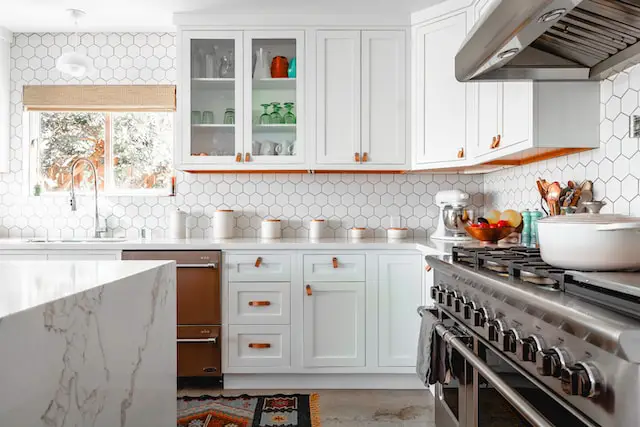In the fast-paced world of culinary endeavors, the utilization of cameras in commercial kitchens has become a widely discussed topic. These unblinking electronic eyes serve a multitude of purposes, but the question remains: Are cameras allowed in kitchens? Let’s dive into this intriguing subject and shed light on the matter.
Cameras are widely used in commercial kitchens for security, remote access, and legal evidence. The debate continues over their advantages and drawbacks. Striking a balance between privacy and security through clear policies, employee consent, limited access, and anonymized monitoring is vital for their responsible implementation.
The Prevalence of Cameras in Commercial Kitchens
- Nowadays, video cameras are commonly installed in commercial kitchens for several important reasons.
- Security: One of the primary purposes of installing cameras is to enhance security measures in the kitchen environment. These cameras act as silent sentinels, constantly monitoring the surroundings and helping to deter potential theft and malicious activities. Installing security cameras in a restaurant, including the kitchen area, can help reduce theft and improve overall security. According to a report, nearly 75% of all restaurant theft occurs in the industry
- Remote Access: Moreover, owners and management can remotely access these cameras, providing them with real-time insights into kitchen operations from anywhere at any time.
- Evidence for Lawsuits: In the unfortunate event of accidents or legal disputes, the footage captured by these cameras can serve as valuable evidence to protect both the establishment and its employees.
- Health and Safety: Cameras contribute significantly to maintaining general health and safety standards in commercial kitchens, promoting best practices and adherence to guidelines.
Public Spaces vs. Private Areas
- While cameras are extensively employed in public spaces like bars, dining rooms, and kitchens, their usage is strictly regulated when it comes to private areas.
- Public Spaces: In public areas, the presence of cameras is generally considered acceptable due to the higher priority given to security and surveillance.
- Private Areas: However, it is crucial to draw a clear line, and cameras should never be installed in private areas such as bathrooms or bedrooms. Doing so would be a violation of privacy and could lead to severe legal consequences.
Camera Adoption in Food Establishments
- In the context of food establishments, the adoption of cameras has become increasingly common, and the trend shows no sign of abating.
- Various Security Purposes: Cameras serve various security purposes in food establishments, which makes them indispensable assets in this industry.
The Great Debate
- As with any innovative technology, the presence of cameras in kitchens has sparked heated debates among different stakeholders.
Pros of Cameras in Kitchens
- Enhanced Security: The most apparent advantage is the bolstering of security. The mere presence of cameras can act as a deterrent, reducing the likelihood of criminal activities.
- Employee Accountability: Cameras can foster a sense of accountability among kitchen staff, encouraging them to adhere to protocols and maintain professionalism.
- Process Monitoring: Management can use camera footage to review kitchen processes and identify areas for improvement in efficiency and workflow.
- Customer Safety: In establishments where kitchens are visible to customers, cameras can assure patrons of the quality and hygiene of their food preparation.
Cons of Cameras in Kitchens
- Invasion of Privacy Concerns: The primary concern voiced by opponents is the potential invasion of privacy, especially if cameras are installed in areas where employees have reasonable expectations of privacy.
- Employee Discomfort: Constant surveillance can lead to discomfort among employees, affecting their morale and job satisfaction.
- Misuse of Footage: There are apprehensions about the misuse of recorded footage, leading to concerns regarding data security and unauthorized access.
- Distraction and Focus: The presence of cameras may also distract kitchen staff, possibly impacting their focus on critical tasks.
Balancing Privacy and Security
- Striking the right balance between privacy and security is essential for the ethical and legal use of cameras in kitchens.
Transparent Policies
- Establishments should have well-defined and transparent policies regarding camera usage. These policies must address the areas where cameras are installed and the purpose behind their implementation.
Employee Consent and Training
- It is vital to obtain employee consent before implementing cameras. Adequate training should also be provided to ensure staff understands the purpose and limits of surveillance.
Limited Access
- Access to camera footage should be restricted to authorized personnel only, preventing unauthorized viewing and misuse.
Anonymized Monitoring
- In some cases, cameras can be set up to monitor processes without capturing identifiable information, ensuring privacy while still benefiting from surveillance.
Conclusion
Cameras have undoubtedly become an integral part of security measures in commercial kitchens, offering numerous advantages in terms of safety, process improvement, and evidence for legal protection. While their usage is widespread in public areas, caution must be exercised to respect privacy when implementing cameras in kitchens. Striking a balance between security and privacy through transparent policies, employee consent, and limited access to footage is key to leveraging this technology responsibly and effectively in the culinary world.

